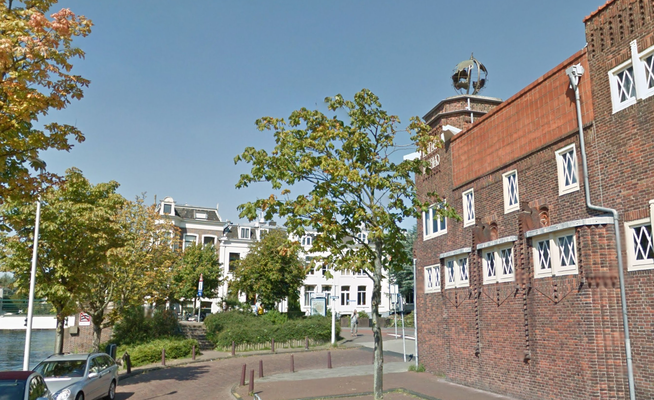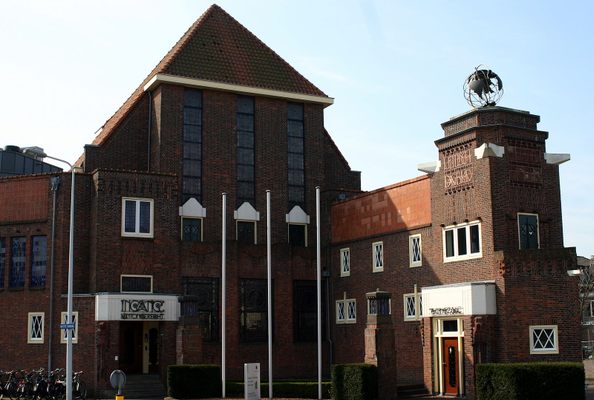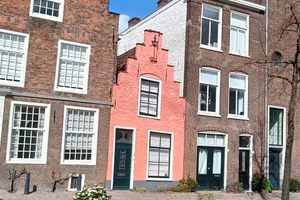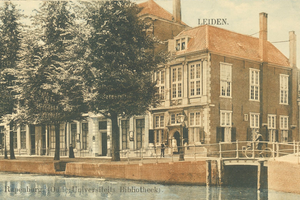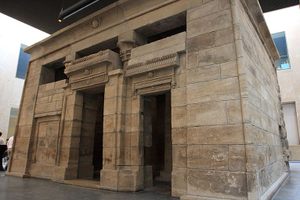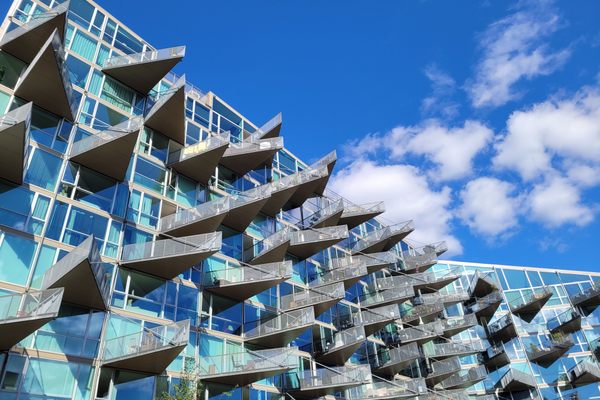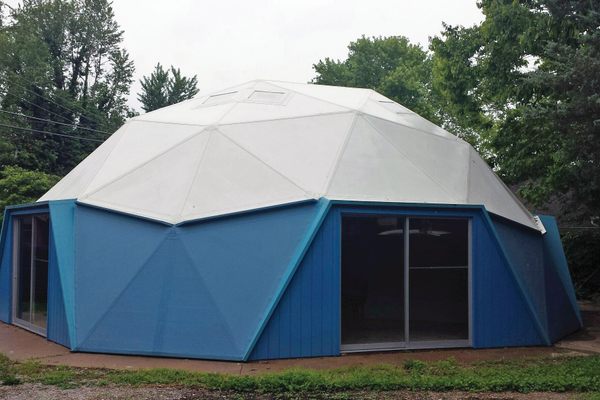About
Gebouw Leidsch Dagblad, or "Leiden Newspaper Building," is much more complex than its bare-bones name suggests. Once the headquarters of the Dutch province's biggest daily, the structure pops with surprises—including one of the world's more interesting drainpipes.
Completed in 1916, Leidsch Dagblad was the joint effort of two soon-to-be famous architects. Designer Willem Dudok, best known for the Hilversum Town Hall and some super-creative gas stations, took it as his first commission, while J.J.P. Oud, a noted follower of the rigorously minimalist De Stijl movement, oversaw its construction. Together, they put together a huge brick structure that musters geometrical precision, Rococo-style lettering, and stark color contrasts for an overall impressive effect.
It's also covered in whimsical flourishes, based off of what went on inside. There's a Daily Planet-esque globe crowning one of the towers, and a statue of a scribbling figure lingers near the entrance. Roosters (which, like reporters, wake up with the sun) ornament the sides, while tall stained glass windows feature icons "representing news, advertisement, and criticism."
Sneak around back, though, and you'll find something slightly more improbable—a drainpipe shaped like an elephant. Water that lands in its head flows all the way to the ground through its multi-story trunk. Its relationship to the news is anyone's guess, but it's certainly newsworthy on its own.
The building no longer belongs to Leidsch Dagblad—the newspaper has downsized to a smaller office, and a district court now occupies the space. But its status as a registered and protected national monument ensures that the elephant drainpipe will survive the death of print media, the extinction crisis, and other such passing troubles. Dudok's blocky pachyderm proves that in the hands of the right architect, even a boring piece of infrastructure can be made unforgettable, and invincible.
Related Tags
Community Contributors
Added By
Published
July 27, 2015


